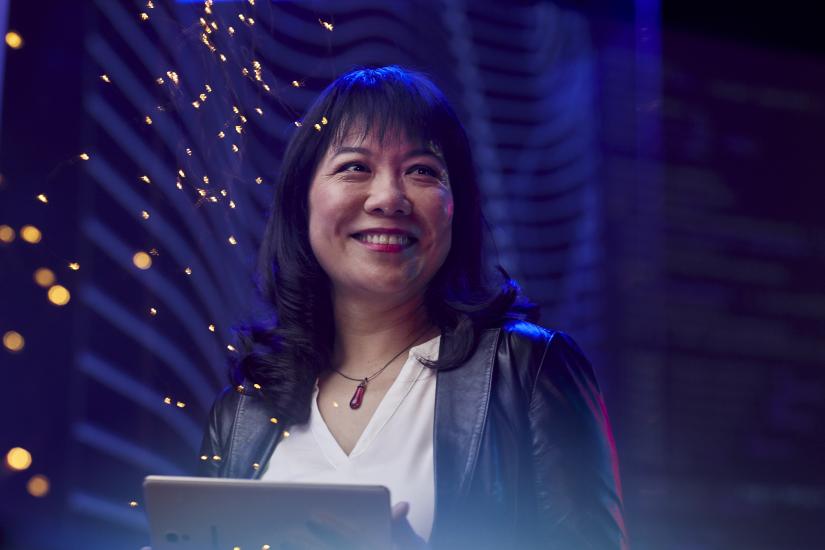UTS researchers, in collaboration with Acer Australia and Intel, have developed new software that overcomes some of the current limitations associated with digital learning. They are in the process of testing it in Australian classrooms.
Distinguished Professor Fang Chen, data scientist from the Faculty of Engineering and Information Technology, is leading the UTS contribution. She says they have made significant progress since the project was initiated in 2018.
“We have been able to prove the concept and effectiveness of using digital technologies to understand student engagement patterns in the classroom in real-time,” she says.
“This is exciting because it opens up many possibilities to create innovative solutions for educators, students and the broader community for effective lifelong online learning.”
Dr Kun Yu leads the Human Performance Analytics Team in the UTS Data Science Institute and has worked closely with Acer on the project. He says the main issue with the digital learning platforms developed to date, is that there is no way of measuring how effective they are.
“Until now, most digital learning methods have been one-size-fits-all. There’s been no ability to personalise the educational experience and no easy way to measure the learning performance of students or what happens when they face learning difficulties,” he explains.
“This is what our collaboration with Acer is attempting through this project.”
The team has drawn on hundreds of hours of learning data using hand gesture and eye-tracking technology combined with mouse movements, keyboard and digital pen usage to develop their new technology. The data is analysed using machine learning algorithms and artificial intelligence to determine behaviour patterns and their links to learning outcomes.
“Our research has focused on how to analyse human behaviour, intention, perception and response to the digital world, especially when students are interacting and engaging with education material for online learning,” Yu continues.
The result is a platform that tracks the behaviours and engagement levels of students in real-time in a non-invasive way. It also delivers real-time student engagement analytics to teachers.
“The software can tell the teacher when a student is captivated by the material or when they may be somewhat less enthralled,” he says.
“Moreover, when linked with traditional performance evaluation, the data provides a new way to understand the link between behaviour and learning in each individual student in both the short and long term.”
UTS was the perfect choice of partner for Acer because of their exceptional subject matter expertise in data analytics.
— Rod Bassi, Oceanic Sales Director, Acer Australia
Rod Bassi is the Oceanic Sales Director at Acer Australia and says the company initiated the project because they wanted to contribute to better learning outcomes in Australian classrooms.
“Our eyes were opened to the incredible world of data analytics through a different project so we became really interested in gaining more experience in this area. We wanted to engage our key school clientele and awaken them to the possibilities of using data to improve in-classroom learning,” he explains.
“UTS was the perfect choice of partner for Acer because of their exceptional subject matter expertise in data analytics. The team is so knowledgeable and accommodating. It’s refreshing to collaborate directly with a progressive university renowned for technology.”
Having already engaged with schools in Queensland and Victoria to pilot the technology, Bassi says the next step is to bring more schools onboard to see how well the technology performs in different classes, for different-aged students.
“We can’t wait to grow the project and offer the opportunity to Australian primary and secondary classrooms to deliver strong learning outcomes that empower the next generation of leaders,” he says.
Research centre
- Data Science Institute
Funded by
- Acer Australia
- Intel



